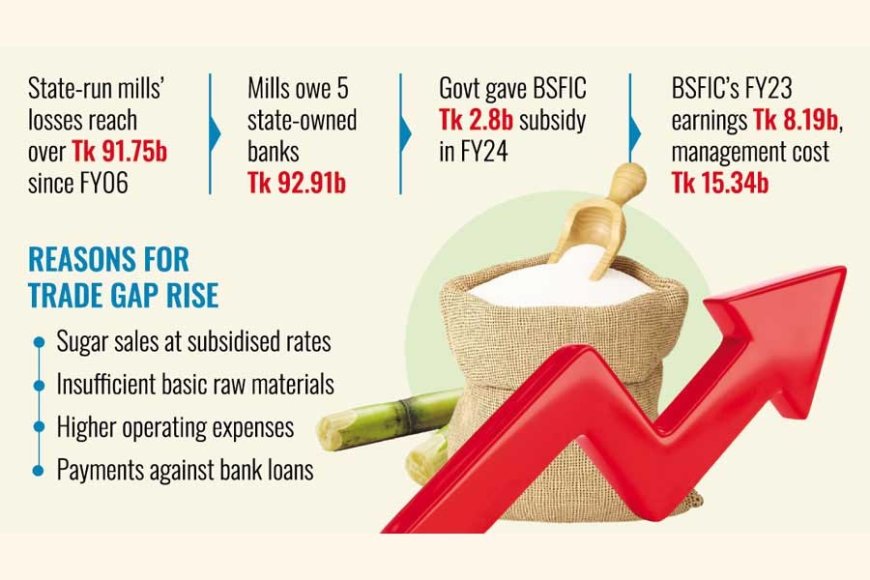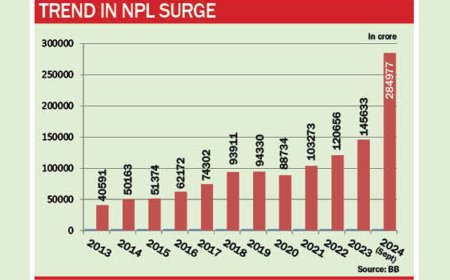BSFIC's Trade Deficit Soars to Tk 80 Billion
BSFIC's Trade Deficit Soars to Tk 80 Billion

BSFIC's Trade Deficit Crosses Tk 80 Billion Amid Rising Losses
The trade deficit of the Bangladesh Sugar and Food Industries Corporation (BSFIC) has exceeded Tk 80 billion, driven by factors such as subsidised sugar sales, insufficient raw materials, high operational costs, and mounting debt servicing obligations.
Following the suspension of six state-run sugar mills in 2020 by the previous Hasina government to reduce costs, the corporation has struggled to manage its financial challenges. According to the Bangladesh Economic Review, accumulated losses since FY2005-06 have now surpassed Tk 91.75 billion, while cash-strapped mills face difficulties meeting operational expenses and servicing bank loans.
BSFIC officials revealed that outstanding dues, including interest owed to five state-owned banks—Sonali, Janata, Agrani, Rupali, and BASIC—stand at an estimated Tk 92.91 billion. Despite receiving a Tk 2.80 billion subsidy in FY24, the corporation has failed to turn a profit due to its heavy debt burden and high production costs.
Challenges in Production
State-owned sugar mills currently operate at an annual production capacity of 0.21 million tonnes, far below the country's annual sugar demand of over 2.2 million tonnes. A lack of necessary raw materials has further limited production, while high production costs have left the mills unable to compete with selling prices, leading to substantial losses.
The BSFIC generated Tk 8.19 billion in FY23 from its mills and factories, but management costs exceeded Tk 15.34 billion. On average, the mills have incurred annual losses of Tk 10 billion for years.
Roadmap for Recovery
In an effort to turn the sector profitable, the Industries Ministry has initiated multiple projects to diversify sugar production and utilize existing resources more efficiently. A five-year roadmap, spanning FY2022-23 to FY2026-27, has been developed to achieve this goal.
According to BSFIC sources, loans extended to the mills were originally intended to support sugarcane farmers. While farmers repaid their debts by supplying sugarcane, the mills failed to fulfill their financial obligations.
The corporation continues to grapple with high production costs, limited raw material supplies, and substantial debt, all of which hinder its ability to achieve financial stability.
What's Your Reaction?





















































































